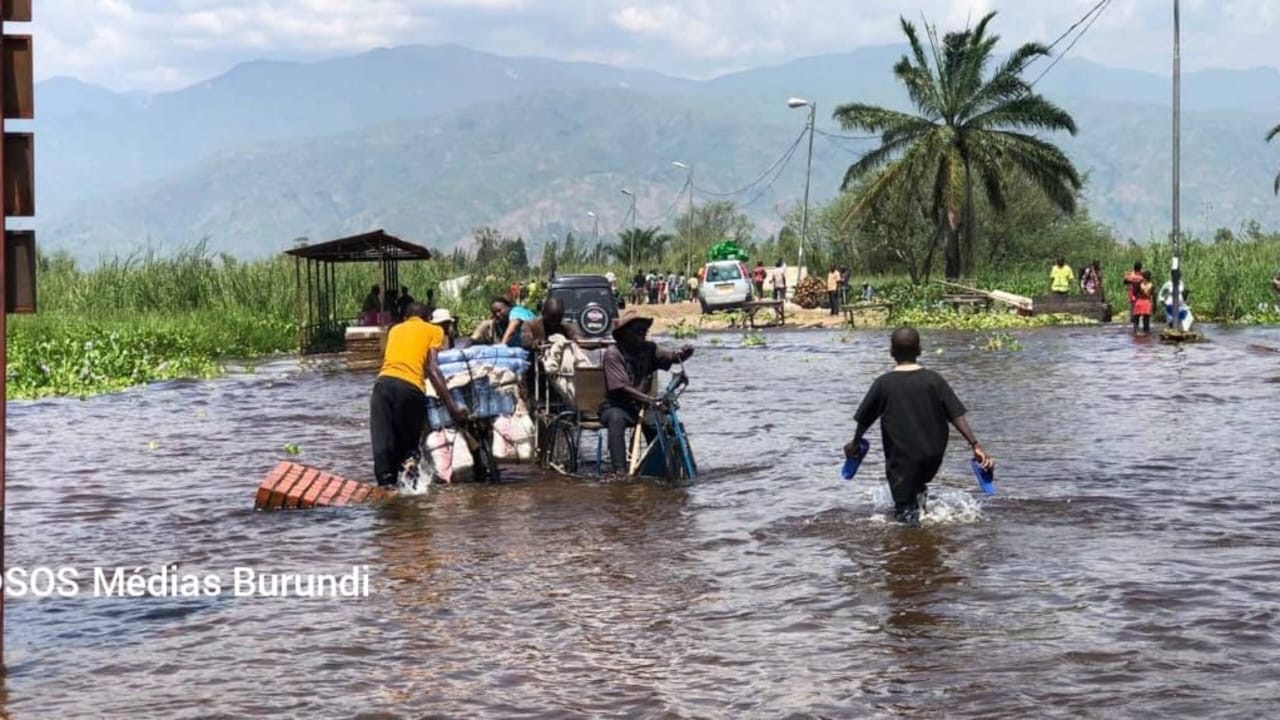Photo of the week-Lake Tanganyika : more than a lake, a life threatened by inaction

Lake Tanganyika, one of the world’s largest freshwater lakes, benefits from exemplary cooperation between Burundi, the DRC, Tanzania, and Zambia through the Lake Tanganyika Authority (LTA). However, in Burundi, inaction in the face of pollution, uncontrolled extraction, and environmental pressures is causing concern, as denounced by the Basket Fund.
Established in 2008, the LTA coordinates the implementation of the Convention on the Sustainable Management of Lake Tanganyika. Based in Bujumbura, it brings together the actions of the four riparian countries : thematic studies, strategic plans, harmonized regulations, and the mobilization of financial partners.
A five-year project, launched on February 26, 2025, aims to strengthen biodiversity conservation, sustainable fisheries management, and the restoration of degraded areas around the lake.
An exceptional but fragile ecosystem
The lake is home to more than 250 species of fish, including endemic species such as the Mukeke (Lates stappersii) and the Ndagala, which are essential for the local population.
However, the Basket Fund, an international conservation organization, is sounding the alarm : « The pollution of the lake threatens not only the ecosystems, but also the drinking water supply of millions of people living around the lake. »
A local biologist explains : « Turbidity increases, oxygen decreases, and this suffocates aquatic life. »
Local threats : pollution, extraction, and inaction
Locally, the situation is critical :
Uncontrolled extraction : Abundant sand and gravel quarries without authorization or supervision, particularly in Rumonge and Nyanza-Lac in southwest Burundi.
Pollution and Sedimentation : Waste dumping, runoff, and sedimentation, which compromise fish habitats.
Lack of regulation : No visible measures by the authorities to curb these activities and protect the environment.
The Basket Fund denounces culpable administrative laissez-faire in the face of these practices, increasing the risk of ecological collapse.
What are the consequences for the population?
- Loss of biodiversity and weakening of traditional fisheries.
- Degraded water quality, compromising access to a vital resource.
- Hindering development : declining local fisheries and untapped economic potential of lake transport.
The Basket Fund’s recommendations
To reverse the trend, the organization recommends :
Active monitoring of extraction and pollution.
Enforcement of the rules adopted by the LTA, with penalties for non-compliance.
Community involvement in local and sustainable management.
Strengthening human and financial resources at the national level to protect Burundi’s coastline.
Cooperation around Lake Tanganyika is a model of diplomacy to be commended, but it will only be effective if concrete actions are taken locally. According to the Basket Fund, the threat is real : the ecosystem, the economy, and drinking water are in danger. Urgent and coordinated mobilization by the Burundian government is essential.
Lake Tanganyika deserves as much local as regional commitment: more than a lake, it is a life that must be preserved.
Our photo : passengers struggle to navigate the Bujumbura-Uvira road, partially submerged by the waters of Lake Tanganyika

